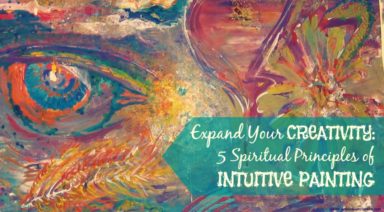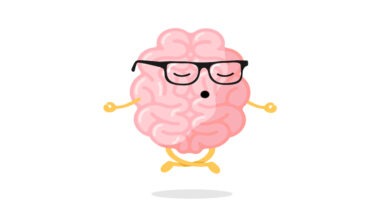Using The Science of Intention Setting for Success at Work

According to many spiritual leaders and success gurus, good fortune, abundant health, love, and finance do not come to you by accident. You call them forth with your thoughts, actions, and intentions. And if you are not experiencing days filled with joy and fulfillment at work, it is likely that you only have your own subconscious mind to blame.
Many old, limited and toxic belief systems hide out in our subconscious mind and are secretly running the show of our lives. When you are focused on your current state of misery, scarcity, and ‘want,’ then you will receive more of the same. Yet merely by thinking of yourself as having joy and abundance at work, you will start the process to make it a reality and begin to attract the right resources and people to you.
Setting Your Intention
Start by taking a big picture approach to your goals and be specific. If you know what you want, don’t beat around the bush. Boldly ask for it. Saying “I am a confident and detail-oriented senior copywriter” leaves little question as to what you are trying to accomplish. When you acknowledge the direction you’d like your career to shift, you can start to approach your workday with a whole new sense of being — every action you make throughout the day starts to change with your intention in mind.
Rephrase your goals in a positive way that brings you even closer to what you want. Saying “I am happily employed at the job of my dreams” will eventually help you figure out what those dreams actually are.
Even thinking through your intention helps you get really clear on what you might want out of your job, which in turn helps you make clear decisions that are focused solely on that goal. You might start to ask yourself “Does this new project I am taking on serve my intention?”
Give these mantras a try
Repeat these to yourself daily or write them down in a journal.
- I am confident in my skills and will keep an open mind when new challenges arise.
- I am getting a new job that inspires me to challenge myself and that makes me happy.
- I am focusing my energy on what I can accomplish in the present moment and not dwelling on mistakes from the past.
- I am successful in everything I set out to accomplish.
- I am a valuable asset to the company.
Science of How Intentions Work
When you say a mantra and/or intention it creates an energetic pattern in your consciousness. Extensive research has been developed by Dr. William A. Tiller where he measured the frequency of intention using a crystalline-based silicon technology. His research has shown evidence that directed human intention can increase or lower the pH of water by 1 point, the growing of larvae at a 30% increased rate, and the killing of bacteria at a 30% increased rate.
Science explains the power of intention using quantum physics and the idea of information entanglement. Think of time as an imaginary distance. Entanglement occurs when two particles are deeply linked where one particle can instantaneously influence the other even at great distances non-locally. Subtle energies can travel faster than electromagnetic light.
“For the last four hundred years, an unstated assumption of science is that human intention cannot affect what we call ‘physical reality.’ Our experimental research of the past decade shows that, for today’s world and under the right conditions, this assumption is no longer correct. We humans are much more than we think we are and Psychoenergetic Science continues to expand the proof of it.”
– Dr. William A. Tiller
Is there a difference between quantity and quality of intention?
If you’ve ever tried meditating you know that training your mind to focus on a specific thought or idea takes work. Just thinking of an intention once for a few seconds won’t create as strong as an energetic pattern in your consciousness as if you were to do it daily for a set amount of time.
10 Tips To Manifest Money and Abundance in Your Life

Manifesting money and abundance is a process that unites intention, energy, and focused action. It’s not just about wishing for wealth but about cultivating a mindset aligned with prosperity and opening yourself to receive it in all its forms. In this article, we explore how to manifest money and abundance with clarity, awareness, and practical tools you can use in your daily life.
Table of Contents
- What Does It Mean To Manifest Money and Abundance?
- 10 Tips To Attract Money and Abundance
- Manifesting Money From a Spiritual Perspective
- Spiritual Practices To Boost Money Manifestation
- Common Mistakes When Trying To Manifest Wealth
- How To Maintain an Abundance Mindset Long Term
What Does It Mean To Manifest Money and Abundance?
Manifesting money is a deep process of connecting with the energy of prosperity and worthiness. It’s a conscious practice where you align your thoughts, emotions, and decisions with the energy of wealth. Learning how to manifest money begins with recognizing that your financial reality is directly influenced by your inner state, your beliefs, and your capacity to receive.
Manifesting money is not solely based on techniques or rituals, but rather on the profound transformation of your relationship with value, worthiness, and the flow of resources. To sustain the manifestation of abundance, it’s essential to feel in tune with the idea of thriving—without guilt, fear, or resistance. This way, you make space for financial opportunities to flow more easily into your life.
From the law of attraction perspective, manifesting wealth means focusing your attention on what you do want to experience, not on what you fear losing. If your thoughts are constantly centered on lack, you’re likely to keep replicating that experience. In contrast, by cultivating a mental and emotional frequency rooted in gratitude, trust, and purpose, you begin to attract situations that mirror that abundant energy.




































